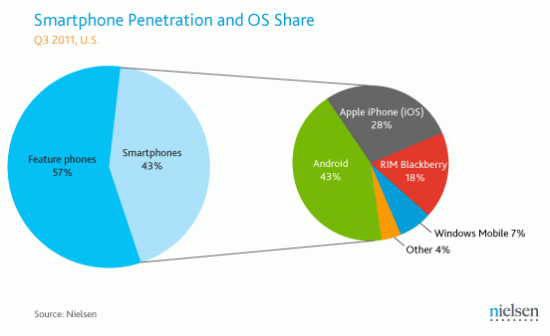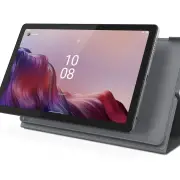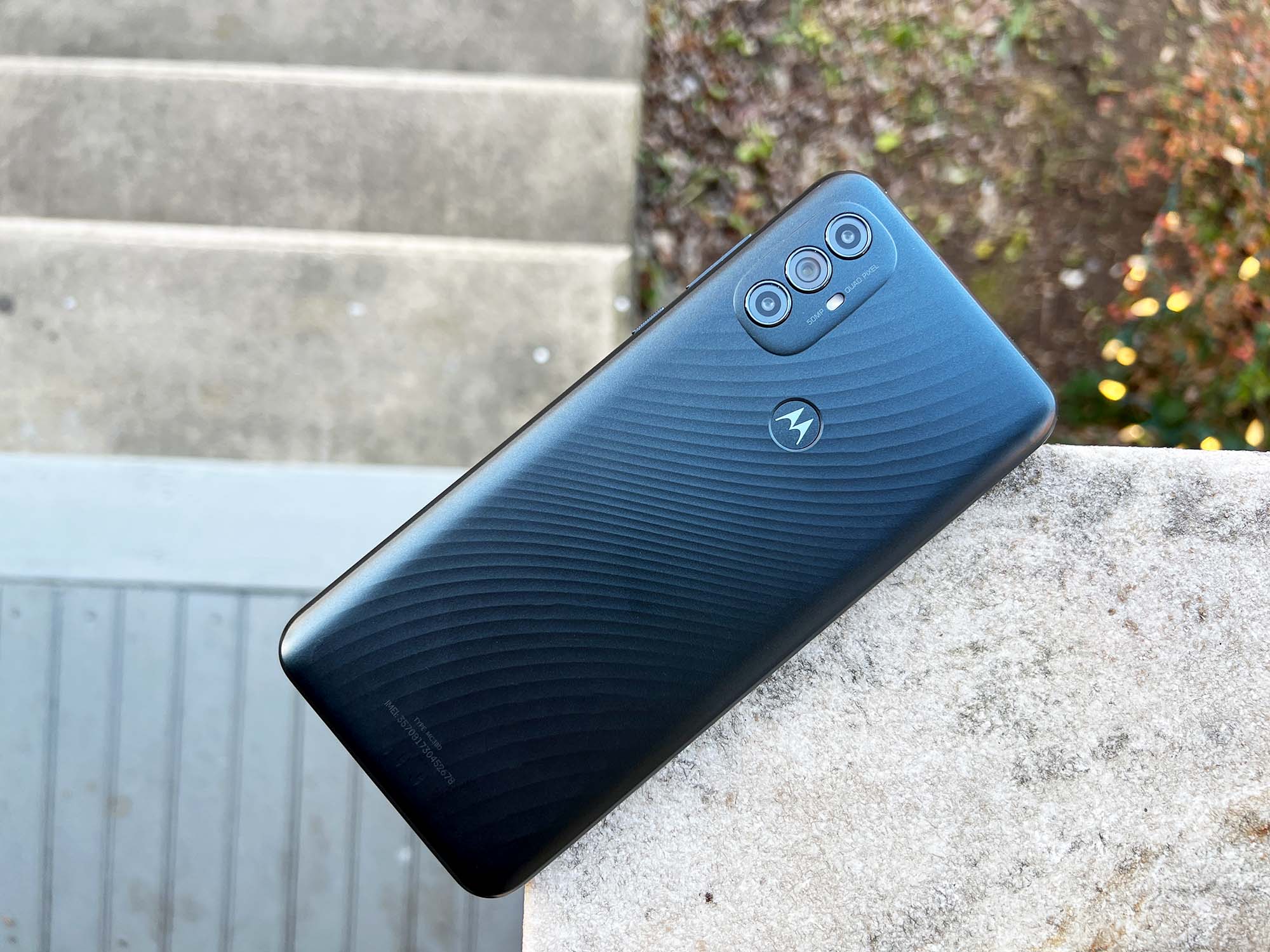Android continues to lead US smartphone market share, and the gap is growing according to the latest figures from Nielsen. For the third quarter of 2011 Android’s share reached 43 percent, up from 39 percent, compared to Apple’s 28 percent, which saw no change. Android saw its gains at the expense of RIM and Microsoft, whose dropping share combined for 25 percent of the smartphone market. Symbian and webOS featured such a small showing that Nielsen dumped them into the “other” category with 4 perent total share.
Nielsen reports 43 percent of all mobile phone users own a smartphone, with Apple ranking as the top vendor despite conflicting reports from other analytics firms.
[via Nielsen]












There is such a wide range of Android phones to choose from, how could Android not sell more. But more is not always better. I have a Photon by Motorola, and I wouldn’t consider a cheaper device…and I like the iPhone. I just prefer Android.
The “there’s a wide range to choose from so of course it’s winning” argument is one commonly heard from fanbois; though doesn’t hold much water no matter where it comes from… If simply having a lot of devices available was a determining factor for success, Nokia never would’ve been overtaken.
Android is winning market share because people love the OS.
exactly that is what the crapple fans always forget
and because people love it, so do manufacturers – encouraging them to install android on their devices.. android is simply a success
if Android was just for open source nerds and not for ordinary users, it wouldn’t get this much marketshare.
I think there is actually some merit to what @fdb6239b46efc6da2d33276ad9960844:disqus was saying. The quantity in itself isn’t the deciding factor but it does help. Allow me to explain. The iPhone only comes out once a year, it is the latest and greatest for a steadily decreasing amount of time every year it seems. The latest android phone will make it obsolete in about a month. In the case of the 4S, it is obsolete before it even hits store shelves. Now consider the way most people buy phones, on a contractual term. As a result, when people are eligible for an upgrade, they want the latest and greatest right now and the reps are going to push that as well. Since so many android phones are released throughout the year, apple will not get the customers that don’t upgrade in June or (in the case of this year) September.
Why is WinPhone at 7%?
Mobile*
There’s a huge difference
I believe that includes WP7. Nobody sells winmo 6.5 phones anymore.
Blackberry, Nokia and Wp7 all have MULTIPLE phones and they don’t sell any.
Variety doesn’t determine consumer spending. It only aids prospective buyers.
It’s kind of ironic that Windows Phone’s have 7% market share (lol)
I don’t think it is ironic, as in unexpected. The pie chart is referring to Windows Mobile as in 6.5 or earlier. Windows Phone is not on the pie chart as it is a different animal. Windows Mobile has been around for a very long time and in the corporate world just like Blackberry it was very much the only supported devices by IT departments, especially for companies with an Exchange server. Remember iPhone IOS and Android did not have Exchange support from the beginning. Some Exchange support didn’t come to Android till Eclair 2.1 and actually didn’t get good until Froyo 2.2. I had a Windows Mobile 6.5 right up until the beginning of this year for this very reason. So just like Blackberry has still a lot of people holding out so does Windows Mobile. I find it funny that Windows Phone is no where on the pie chart, so insignificant that it is a part of the “4% Other”…ha!
You have to remember that Windows Phone is still young compared to any other mobile OS. It doesn’t have much market share right now, but that doesn’t mean that it won’t grow in coming years. I know people with Windows phones, and people who are interested in getting one in the future.
The only people I know with Windows Phones are .NET developers
Or XBox Live fanboys that want the extra experience points from connecting the phone to their account.
7% would be way too high for winMo 6.5 in 2011. More likely they just put all versions of Windows in one category.
It’s ironic because Windows is so dominant on the desktop. I remember when everything was called a Palm Pilot and then the ipaq came along and totally destroyed PalmOS. Even Palm decided to use WinMo for some of their phones. By the time they came up with webos it was too late and Palm isn’t even a factor anymore.
I was thinking ironic because winmob 7 has 7% They will do better when they release WinMob 92.
Here’s why WP7 is a failure (this is about mango, the latest version which just came out):
“Unfortunately, Microsoft’s
hardware spec is behind the times, which will prevent Mango from getting
much traction. The OS doesn’t support LTE or WiMAX, which means that
neither Verizon nor Sprint will promote it with enthusiasm. It doesn’t
support dual-core processors, the current state of the art, or the
latest GPUs. And it only allows an 800-by-480 screen resolution.
The lack of network support means that the Internet will feel slower
on Windows Phones than on competing 4G Android devices, while limited
GPU support may hold game developers back. Mango also only supports
Qualcomm S2 processors (not even Qualcomm’s faster S3 models); Nvidia
has said that it wants to help build Windows phones, but the company has
been rebuffed so far. It blows my mind that Microsoft is actually
rejecting world-class hardware partners.”
http://www.pcmag.com/article2/0,2817,2393463,00.asp#fbid=04vp9eZADQm